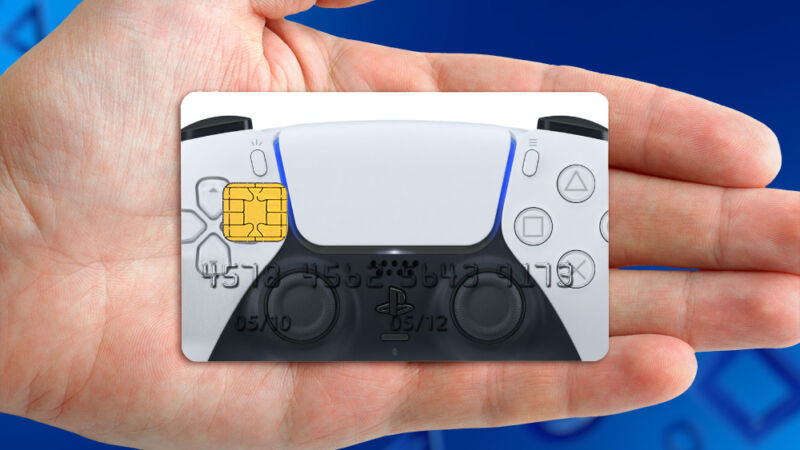Your PlayStation allegiance may determine whether you can preorder a PS5

Want to be first in line to preorder PlayStation 5? In a rare move for a console’s launch, Sony has led the charge by announcing a direct-sales program—one that bypasses typical retail channels—before the upcoming system’s price, release date, or other details have been announced.
Starting today, prospective buyers can go to Sony’s official preorder site to express their interest in purchasing a PS5. Users only need to enter one piece of information into the form: their PlayStation Network ID. And… that’s it.
Before ordering, please answer 27 questions about Nathan Drake…
From there, Sony will determine exactly who will be deigned worthy of a shot at purchasing a PS5, and this will be based on “previous interests and PlayStation activities.” Exactly what that information is, and how it will be weighted, is currently unclear. Years of membership? Number of games owned? Whether the account in question pays for subscription services like PlayStation Plus or PlayStation Now, or merely uses a wholly free PSN account? Sony has yet to clarify this point.
If you’ve been selected as part of Sony’s direct pre-order program, you’ll find out at some point (currently unknown) via an email sent to the address registered to your PSN account. (Hence, today would be a good day to double-check that address and other PSN profile information.) If you didn’t get into Sony’s preorder program, you won’t receive the bad news in the form of an email or any other notification. And while PSN IDs from all over the world will be eligible for this program, orders will only work if they ship to US addresses. It’s unclear whether Sony will roll out similar campaigns for other territories.
With that email, you’ll be told the exact time window you have to place an order of a PS5 console, which can either be the standard version (with a disc drive) or the “Digital Version” (no disc drive). Sony has emphasized a limit of one PS5 console per PSN ID. Invited PSN users will also be able to directly order PS5 peripherals with their console, including DualSense controllers, headsets, cameras, media remotes, and controller charging stands. No peripheral bundle will be forced upon buyers in Sony’s direct-sales program.
-
Now we know what PlayStation 5 looks like…
-
…and we also know what its “Digital Edition” sibling looks like, too. But many questions remain unanswered.Sony Interactive Entertainment
-
The entire PS5 hardware library, as revealed by Sony.
-
Handsome, slow-motion pans across the hardware reveal how blue LED lights will glow through the system.Sony Interactive Entertainment
-
The all-important “PS” logo.Sony Interactive Entertainment
-
The console appears to have one USB Type-A and one USB Type-C slot on its front face.Sony Interactive Entertainment
-
Revealed peripherals: the DualSense controller (which we’d already seen).Sony Interactive Entertainment
-
An official charging station! Well, now.Sony Interactive Entertainment
-
Sony is continuing its streak of launching a brand-new camera peripheral for a new console.Sony Interactive Entertainment
-
Sony’s continued talk of the Tempest 3D Audio Engine makes this headset announcement pretty unsurprising.Sony Interactive Entertainment
-
Instead of concluding with a new VR headset, Sony showed fans… a new media remote. I mean, it looks nice enough.Sony Interactive Entertainment
Sony’s language implies, but doesn’t quite confirm, that this PSN-related program will be the very first one in the world to offer PS5 console preorders. Meaning, Sony may beat typical retailers like Gamestop, Amazon, and Best Buy to the preorder party. It’s another major blow to the usual retailer product chain, which was already disrupted by Sony giving fans the option of punting discs with the Digital Edition and buying all their games directly from PlayStation Network.
We’re still waiting to hear exactly how much the console will cost and when it will begin shipping to customers and retailers, but other crucial details remain unanswered before a program like this rolls out. How much will all of PS5’s peripherals cost—particularly the brand-new DualSense controller, which looks bulkier and adds more sensitive functions (particularly its haptic feedback system) than any previous first-party PlayStation gamepad? What kind of built-in capacity should we expect for the PS5’s solid-state drive, and what requirements should we expect for add-on NVMe drives?
Which previously announced games will launch alongside the console? (So far, we only know about Spider-man: Miles Morales as a first-party PS5 game for 2020, but whether it will accompany the console’s launch is still unknown. Comparatively, Microsoft originally announced Halo Infinite as a launch title for this year’s Xbox Series X, only to pull back.)
Most of all, will fans know the price before this preorder program goes live, or will interested buyers have mere milliseconds to swallow the price tag before placing their preorder amongst a crazed mob of specially selected PSN users? Sony likely isn’t incentivized to let anyone mull the price tag, considering how high we expect it will be—and third-party game publishers are already revving fans’ wallets in the form of higher next-gen game prices.
https://arstechnica.com/?p=1701592